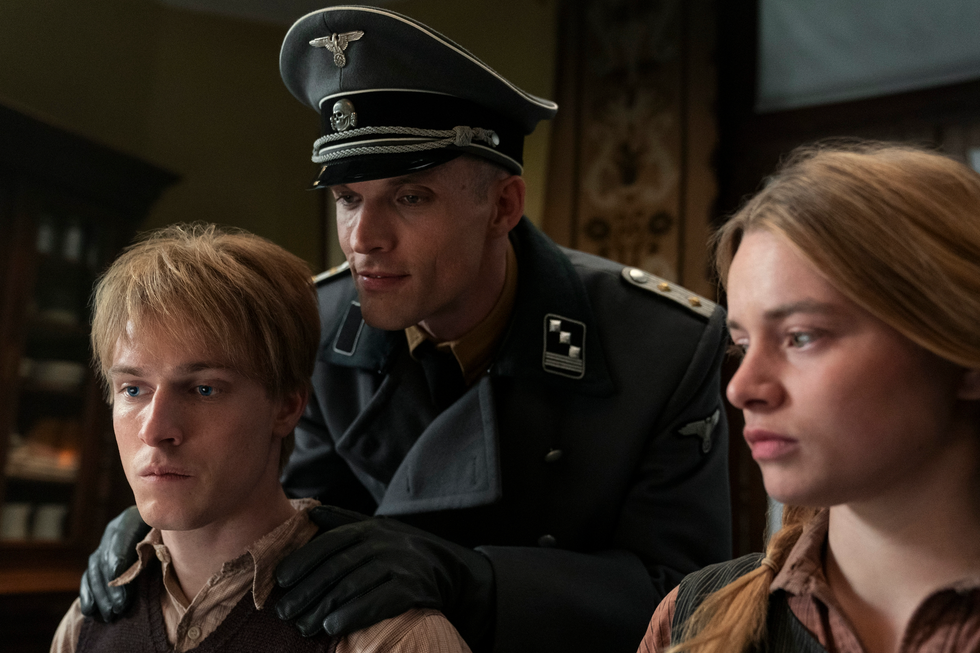CAST: Aria Mia Loberti, Louis Hofmann, Mark Ruffalo, Hugh Laurie, Lars Eidinger
DIRECTOR: Shawn Levy
Netflix’s adaptation of ‘All the Light We Cannot See’ seems to miss the mark in translating Anthony Doerr’s Pulitzer Prize-winning novel to the screen.
The adaptation, led by screenwriter Steven Knight and director Shawn Levy, struggles with depth, reducing a story rich in human insight to a series of underdeveloped characters and on-the-nose metaphors. Key issues arise in the portrayal of the blind French teenager Marie-Laure and the German orphan Werner, where the narrative complexity of their intertwined destinies in Nazi-occupied France is oversimplified.
Set in the Nazi-occupied French town of St. Malo during World War II, “All the Light We Cannot See” follows two teenagers whose lives intertwine amidst the turmoil of war. Marie-Laure LeBlanc, a blind French teenager, broadcasts an illegal radio show in hopes of finding her missing father or her uncle, a member of the French Resistance. Parallel to her story is that of Werner Pfennig, a German orphan forced to join the Nazis due to his proficiency with radio technology. Both characters grew up listening to a philosophical and scientific radio show, unknowingly shaping their worldviews. The story also includes a subplot involving a Nazi officer searching for a mythical jewel believed to have healing powers, which he thinks the LeBlancs possess. This narrative weaves together themes of hope, resilience, and the profound impact of war on individual lives.
Marie-Laure LeBlanc, portrayed by Aria Mia Loberti, is a visually impaired teenager in France. Every night, she runs an unauthorized radio broadcast, hoping to find her lost father, Daniel, played by Mark Ruffalo, who previously managed the locks at Paris’ Museum of Natural History, or to connect with her uncle Etienne, a character by Hugh Laurie, involved in the French Resistance.
Marie-Laure’s character, played by Aria Mia Loberti, is often framed in close-ups that underscore her purity but fail to explore her character’s depth. This shallow portrayal is exacerbated by the repetitive use of the line “Everything has a voice, you just have to listen,” which gradually loses its meaning. On the other hand, Louis Hofmann’s Werner is confined to a limited emotional range, often appearing bewildered, regardless of the situation. The portrayal of Reinhold von Rumpel, a Nazi officer played by Lars Eidinger, is criticized for lacking depth and consistency with the series’ tone.
A significant issue is the dissonance in the acting, partly attributed to Steven Knight’s script, which veers between clunky exposition and overly florid language. The choice of actors doing British accents for French characters, while German characters are played by German actors, further detracts from the authenticity. Mark Ruffalo’s fluctuating accent is particularly noted for its inconsistency.
Overall, Levy’s direction and Knight’s script are seen as failing to do justice to the novel’s nuanced storytelling. The series is described as an artistic miscalculation, with its adaptation characterized as shallow, messy, and ultimately forgettable.







